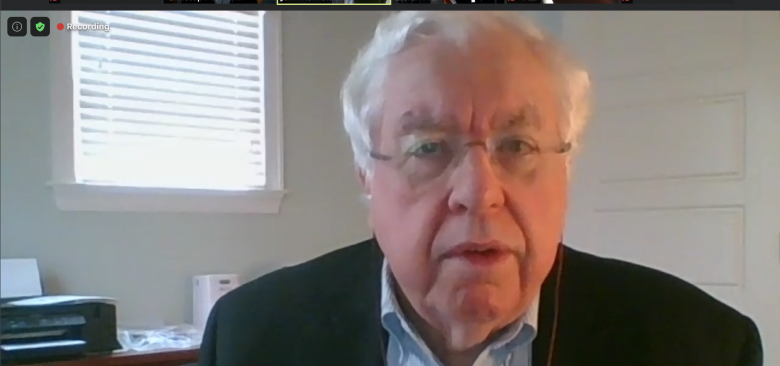Protectionism, rhetorical battles and negative bilateral figures
How can we reach a consensus on global economic interests?
Former US Ambassador to Germany John Kornblum and Dr. Stefan Mair, Member of the Executive Board of the Federation of German Industries (BDI), provided insights into the geopolitical and economic challenges facing the West at the online Foreign Policy Lunch. The event was moderated by Christoph von Marshall, Chairman of the VBKI Committee for International Politics and Economics.
The world order has shifted permanently, and not just in the context of the coronavirus crisis. The global economy has been feeling the effects of the economic conflict between China and the US for almost three years and the climate between the two superpowers has continued to heat up. On the one hand, the US President has imposed further punitive tariffs of up to 25% on Chinese imports, which, according to the World Trade Organization (WTO), apparently violate the rules of the General Agreement on Tariffs and Trade (GATT), and on the other hand, the US government has been withdrawing entry permits from Chinese students on the grounds of "national security" since June of this year. The closure of the US Consulate General in Chengdu, ordered by the Chinese state and party leadership in Beijing, was the low point of the overall situation and apparently the response to the eviction of Chinese diplomats from the consulate in Texas.
China's attempt to strengthen its leading role in the global economy through the planned Silk Road initiative, including by influencing the expansion of infrastructure in Europe, is viewed with skepticism by many. Experts suspect that it is trying to use its market power to assert its political interests in Europe and create economic dependency. This self-portrayal and economic interdependence is the subject of controversial debate. "On a geopolitical level, China is striving for regional dominance and worldwide respect for itself as a global hegemon," says John Kornblum, a leading expert on transatlantic relations between Europe and the USA.
Companies are becoming increasingly uncertain and hesitant to act. This raises the question: how should Germany position itself in the struggle between the major powers for world leadership and what geo-economic strategy should Germany pursue? There is no doubt that the USA is an important partner for politics and business. However, Germany has also felt the effects of the punitive tariffs imposed by Trump, after Germany's export surplus was heavily criticized. And even if China's investment agreements appear questionable, Dr. Stefan Mair emphasized: "Germany must undoubtedly cooperate with more countries in Asia, as China is Germany's largest foreign trade partner ahead of the USA and France". Both speakers agreed that more social mechanisms and processes are now needed than ever before, aimed at sustainability and intensifying talks on a trade agreement. Europe should ensure fair economic competitive conditions and strengthen cooperation within the WTO - including China - and remain open as a coalition partner for both sides.
You might also be interested in
"We need to adapt much faster"
Panel discussion on water as a location factor
Duty as an opportunity
ESG and CSRD - what opportunities lie in sustainability reporting
"The Faster Construction Act will not achieve miracles"
Businessbreakfast with the Senator for Urban Development, Building and Housing








